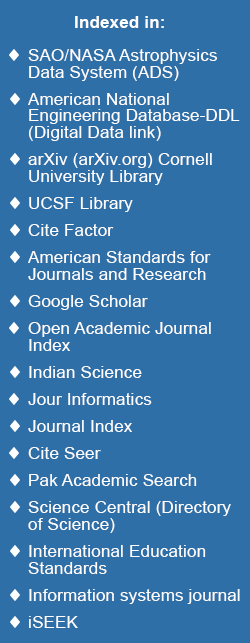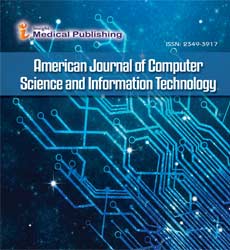ISSN : 2349-3917
American Journal of Computer Science and Information Technology
Boolean Data Type: Fundamentals, Applications, and Advanced Techniques
Erik Sun*
Department of Computer Engineering, Clarkson University, New York, USA
- *Corresponding Author:
- Erik Sun
Department of Computer Engineering,
Clarkson University, New York,
USA,
Email: eriksun67@hotmail.com
Received date: May 09, 2023, Manuscript No. ipacsit-23-17555; Editor assigned date: May 11, 2023, PreQC No. ipacsit-23-17555(PQ); Reviewed date: May 25, 2023, QC No ipacsit-23-17555; Revised date: June 01, 2023, Manuscript No. ipacsit-23-17555 (R); Published date: June 08, 2023, DOI: 10.36648/2349-3917.11.6.1
Citation: Sun E (2023) Boolean Data Type: Fundamentals, Applications, and Advanced Techniques. Am J Compt Sci Inform Technol Vol:11 No:6:001
Introduction
The Boolean data type is a fundamental concept in computer science and plays a critical role in programming, logic, and digital circuit design. This research article provides a comprehensive exploration of the Boolean data type, discussing its origins, fundamental properties, and applications in various domains. We delve into the representation of Boolean values, logical operations, and the utilization of Boolean algebra in decision making and control structures. Furthermore, we examine advanced techniques such as Boolean functions, truth tables, and Boolean optimization methods. Through this investigation, we aim to enhance the understanding of the Boolean data type and its significance in computational systems. The Boolean data type is a fundamental concept in computer science that represents two distinct states: true or false. Named after mathematician and logician George Boole, this data type is widely used in programming, logic circuits, and various computational systems. This article aims to provide a comprehensive overview of the Boolean data type, its properties, and its applications in different domains.
Boolean Representation and Logical Operations
The Boolean data type is typically represented using a single bit, where "0" represents false, and "1" represents true. We discuss the basic logical operations, including AND, OR, and NOT, which enable the manipulation and evaluation of Boolean values. The article explores the truth tables associated with these operations and their significance in decision making and control structures. Boolean algebra is a mathematical system that deals with the manipulation and analysis of Boolean expressions. We delve into the fundamental laws of Boolean algebra, such as the commutative, associative, and distributive properties. Additionally, we explore Boolean identities, De Morgan's laws, and the concept of duality in Boolean algebra. The Boolean data type finds extensive applications in various domains. This section discusses its relevance in programming languages, database systems, and digital circuit design. We examine how Boolean values are utilized for decision making, loop control, conditional statements, and data filtering. Furthermore, we explore the role of Boolean algebra in designing and optimizing digital circuits, including combinational and sequential logic circuits. Boolean functions are mathematical expressions that map a set of Boolean inputs to a Boolean output. We explore the representation of Boolean functions using truth tables, which provide a systematic way to define and analyze the behavior of these functions. The article discusses the construction of truth tables, the identification of prime implicants, and the simplification of Boolean expressions using Boolean algebraic rules.
Boolean Optimization Techniques
Boolean optimization techniques aim to simplify Boolean expressions, reducing the number of logic gates and improving circuit efficiency. We delve into advanced methods such as Karnaugh maps, Quine-McCluskey algorithm, and espresso algorithm. These techniques enable the systematic reduction of Boolean expressions, leading to more compact and optimized digital circuits. The Boolean data type continues to be a fundamental concept in computer science, and its applications are evolving with technological advancements. This section discusses future trends, including the utilization of Boolean data type in artificial intelligence, machine learning, and quantum computing. Additionally, we address challenges such as the scalability of Boolean optimization techniques for complex circuits and the integration of Boolean reasoning in emerging computing paradigms. The Boolean data type is a cornerstone of computer science and is essential for programming, logic, and digital circuit design. This research article has provided a comprehensive overview of the Boolean data type, exploring its representation, logical operations, Boolean algebra, and applications. Furthermore, advanced techniques such as Boolean functions, truth tables, and Boolean optimization have been discussed. By understanding the Boolean data type and its associated concepts, researchers and practitioners can effectively utilize Boolean logic in their computational systems, leading to improved efficiency and reliable outcomes.

Open Access Journals
- Aquaculture & Veterinary Science
- Chemistry & Chemical Sciences
- Clinical Sciences
- Engineering
- General Science
- Genetics & Molecular Biology
- Health Care & Nursing
- Immunology & Microbiology
- Materials Science
- Mathematics & Physics
- Medical Sciences
- Neurology & Psychiatry
- Oncology & Cancer Science
- Pharmaceutical Sciences
